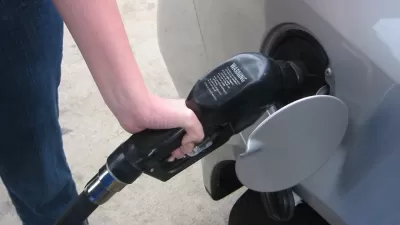An obscure new rule pushed through the Federal Highway Administration requires public toll roads to collect 'fair market value' from drivers, rather than to serve the public interest.
[A] state government will now be required to assess how much a private company might bid for the right to operate a road under a private concession agreement. Then it would be required to charge the 'market-determined' rate, regardless of whether that is best for the public. The goal is to force government to administer toll roads according to the logic of the marketplace, and by this means, gradually push the management of public roads into the hands of private vendors.
Normally, Republicans rail against new layers of bureaucratic 'red tape,' which this 'market-valuation' requirement surely is. But in this case, the rule is a quiet attempt to force government to adopt the logic of the market in its decision-making. Once the profit-driven norms of the market become the default, the customary logic of government-provisioning of roads will be seen as suspect.
Private toll roads are becoming increasingly common ways of building new roads because they are easier to build than conventional government-financed roads. Many states have bond limits that make it hard to raise capital to finance construction, so it can be easier to raise money if a private developer provides the upfront cash."
FULL STORY: Privatizing Public Roads Just Got Easier

Manufactured Crisis: Losing the Nation’s Largest Source of Unsubsidized Affordable Housing
Manufactured housing communities have long been an affordable housing option for millions of people living in the U.S., but that affordability is disappearing rapidly. How did we get here?

Americans May Be Stuck — But Why?
Americans are moving a lot less than they once did, and that is a problem. While Yoni Applebaum, in his highly-publicized article Stuck, gets the reasons badly wrong, it's still important to ask: why are we moving so much less than before?

Research Shows More Roads = More Driving
A national study shows, once again, that increasing road supply induces additional vehicle travel, particularly over the long run.

Judge Halts Enforcement of Anti-Homeless Laws in Grants Pass
The Oregon city will be barred from enforcing two ordinances that prosecute unhoused residents until it increases capacity and accessibility at designated camping sites.

Advancing Sustainability in Los Angeles County Schools
The Los Angeles County Office of Education’s Green Schools Symposium brings together educators, students, and experts to advance sustainability in schools through innovative design, climate resilience strategies, and collaborative learning.

Using Old Oil and Gas Wells for Green Energy Storage
Penn State researchers have found that repurposing abandoned oil and gas wells for geothermal-assisted compressed-air energy storage can boost efficiency, reduce environmental risks, and support clean energy and job transitions.
Urban Design for Planners 1: Software Tools
This six-course series explores essential urban design concepts using open source software and equips planners with the tools they need to participate fully in the urban design process.
Planning for Universal Design
Learn the tools for implementing Universal Design in planning regulations.
City of Moreno Valley
Institute for Housing and Urban Development Studies (IHS)
City of Grandview
Harvard GSD Executive Education
NYU Wagner Graduate School of Public Service
City of Cambridge, Maryland
Newport County Development Council: Connect Greater Newport



























